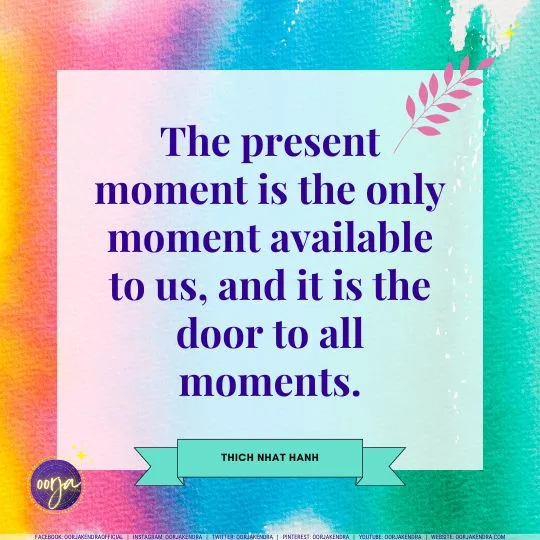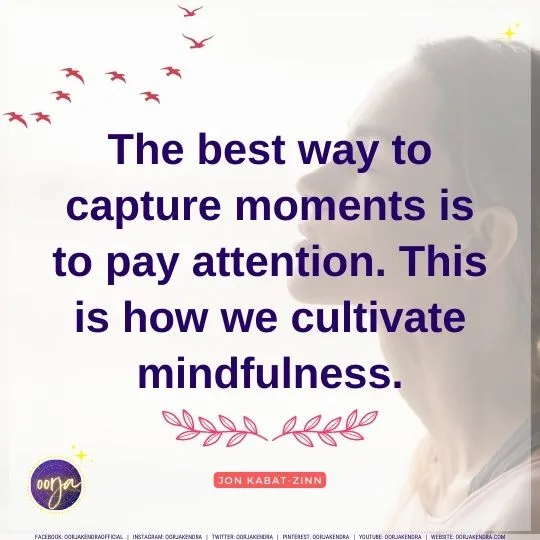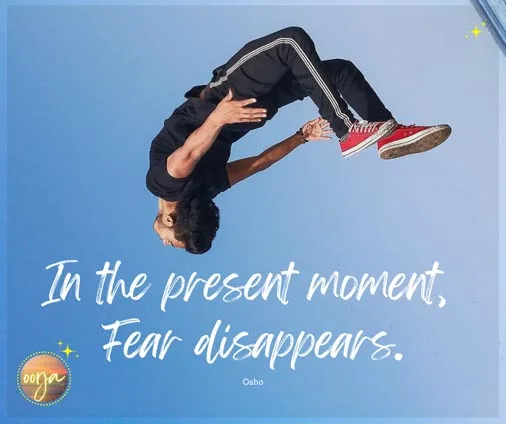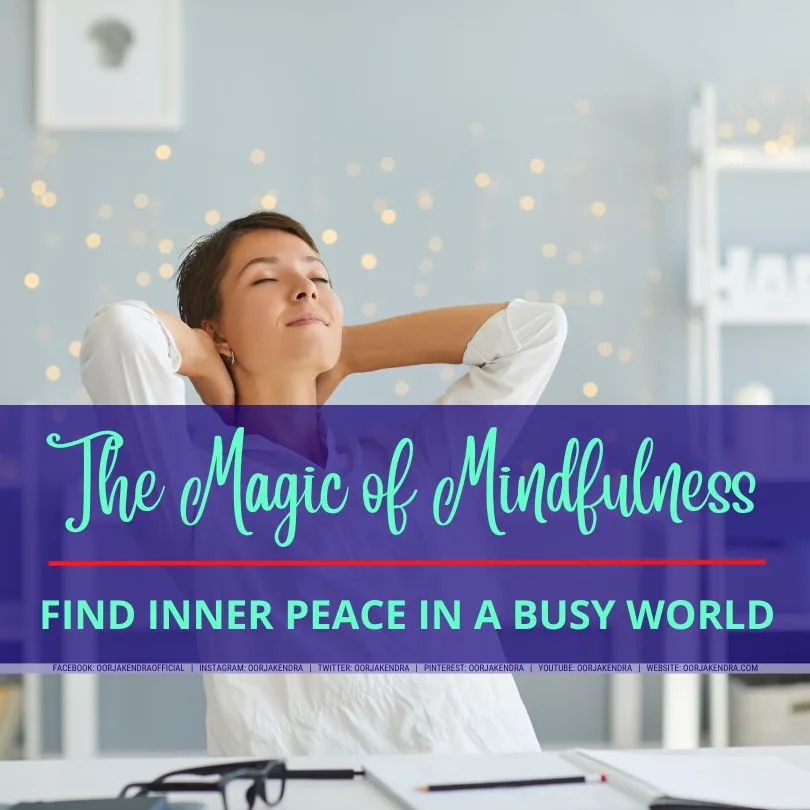In today’s fast-paced and demanding world, it can be challenging to find moments of calm and inner peace. However, there is a simple and transformative practice that can help us navigate the chaos and cultivate a sense of tranquility: mindfulness. In this article, we will explore the concept of mindfulness, its profound benefits for our well-being, and practical techniques to incorporate it into our daily lives.
Mindfulness for Dummies – Mindfulness is paying attention to what is happening right now and being aware of our thoughts and feelings. It’s like being a detective of our own mind and body. When we practice mindfulness, we notice how we are feeling, what we are thinking, and what is happening around us. It helps us stay calm, focus better, and be kind to ourselves and others. It’s like giving our mind a little break and enjoying the present moment.
Understanding Mindfulness
Mindfulness is the art of being fully present at the moment, consciously paying attention to our thoughts, feelings, and physical sensations without judgment. It involves observing our experiences with curiosity and acceptance, allowing us to gain a deeper understanding of ourselves and the world around us. By anchoring ourselves in the present moment, we can reduce stress, anxiety, and mental clutter.

Benefits of Mindfulness
Research has shown that practicing mindfulness can have a significant positive impact on our physical, mental, and emotional well-being. Regular engagement in mindfulness can reduce stress and anxiety levels, alleviate symptoms of depression, improve focus and cognitive abilities, enhance relationships, and promote overall happiness. Moreover, mindfulness has been found to have physiological benefits, such as reducing blood pressure, boosting the immune system, and easing chronic pain.
Ways to Bring Mindfulness into Daily Life
1. Mindful Breathing
Taking a few minutes each day to focus on your breath can have a profound impact on your well-being. Find a quiet and comfortable place to sit or lie down. Close your eyes and bring your attention to your breath. Observe the sensation of the breath entering and leaving your body, without trying to change it. If your mind wanders, gently guide your attention back to the breath. This practice helps anchor you in the present moment, promoting relaxation and reducing stress.

2. Mindful Eating
In our fast-paced world, mealtimes often become rushed and mindless. Mindful eating brings awareness and appreciation to the experience of nourishing your body. Before you start eating, take a moment to notice the colors, smells, and textures of your food. Chew slowly and savor each bite, paying attention to the flavors and sensations in your mouth. Engage your senses fully and be present with your meal, avoiding distractions such as screens or multitasking. By practicing mindful eating, you can enhance your enjoyment of food, improve digestion, and develop a healthier relationship with eating.
3. Mindful Movement
Engaging in physical activities with mindfulness can transform them into opportunities for relaxation and self-awareness. Whether you choose yoga, walking, running, or any other form of exercise, bring your attention to the sensations in your body as you move. Notice the contact of your feet with the ground, the rhythm of your breath, and the way your body feels in motion. Connect with the present moment through the physicality of the activity, allowing it to become a moving meditation. Mindful movement helps reduce stress, increase body awareness, and cultivate a sense of gratitude for your body’s capabilities.

4. Mindful Listening
In our busy lives, we often engage in conversations without truly listening. Mindful listening involves giving your full attention to the person who is speaking, creating space for deep connection and understanding. When someone is talking to you, practice active listening by maintaining eye contact, nodding to show your engagement, and refraining from interrupting. Let go of the urge to formulate responses while the person is speaking, and instead focus on genuinely hearing their words and emotions. By practicing mindful listening, you can enhance your relationships, strengthen empathy, and foster effective communication.
5. Mindful Technology Use
Technology has become an integral part of our lives, but it can also be a source of distraction and stress. Mindful technology use involves consciously setting boundaries and being intentional with your digital interactions. Designate specific times during the day to disconnect from screens and be fully present in the real world. Avoid constantly checking your phone or being overwhelmed by notifications. When using technology, bring awareness to your actions, such as scrolling through social media or sending emails. By practicing mindful technology use, you can regain control over your attention, reduce digital overload, and create more space for mindfulness in your life.

Mindfulness and Productivity
Contrary to popular belief, mindfulness does not hinder productivity; it actually enhances it. When we are fully present and focused on the task at hand, we can work more efficiently and effectively. Mindfulness helps us prioritize tasks, make better decisions, and maintain a sense of calm amid challenges. By reducing stress and improving cognitive function, mindfulness enables us to bring our best selves to every endeavor.
Practical Tips for Cultivating Mindfulness
- Start small: Begin with short mindfulness practices, gradually increasing the duration as you become more comfortable.
- Set reminders: Use cues like alarms or sticky notes to prompt moments of mindfulness throughout your day.
- Practice self-compassion: Be patient and gentle with yourself during the process. It’s natural for the mind to wander; simply redirect your focus to the present moment when it does.
By incorporating these mindful practices into your daily routine, you can gradually develop a greater sense of presence and inner peace. Remember, mindfulness is a skill that takes time and practice to cultivate. Start with small steps, and as you become more comfortable, you can gradually expand the duration and variety of your mindfulness practices. Embrace the journey, and allow mindfulness to permeate all aspects of your life, helping you navigate challenges with grace and find joy in the present moment.
Read more Quotes on how to motivate yourself and move on in life!

Top 3 Best Sellers Books on Mindfulness
Disclaimer: The information provided on this website is for educational purposes only and is not intended as medical advice. It is not a substitute for professional medical advice, diagnosis, or treatment. Always seek the advice of your physician or other qualified healthcare providers with any questions you may have regarding a medical condition. If you think you may have a medical emergency, seek professional medical advice immediately. Moreover, some of the links on the Website may be affiliate links. This means if you click on the link and purchase an item, the Operator will receive an affiliate commission.




